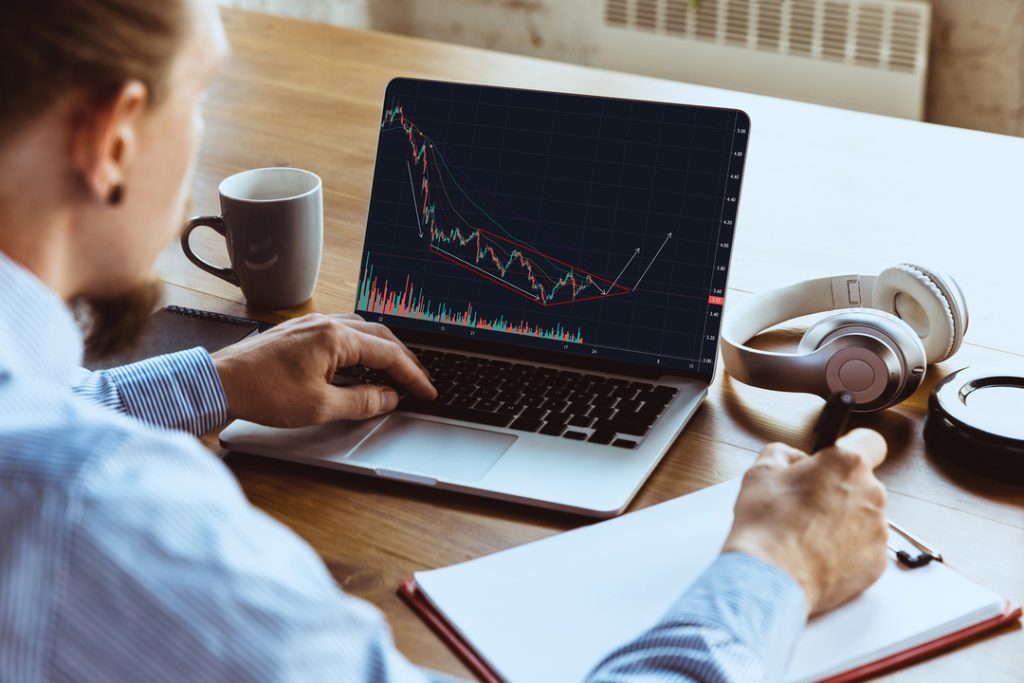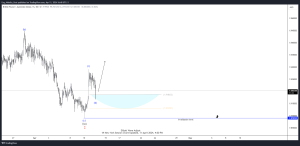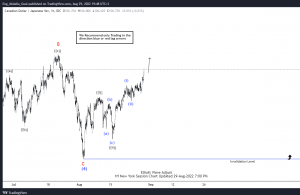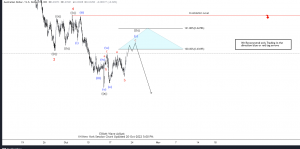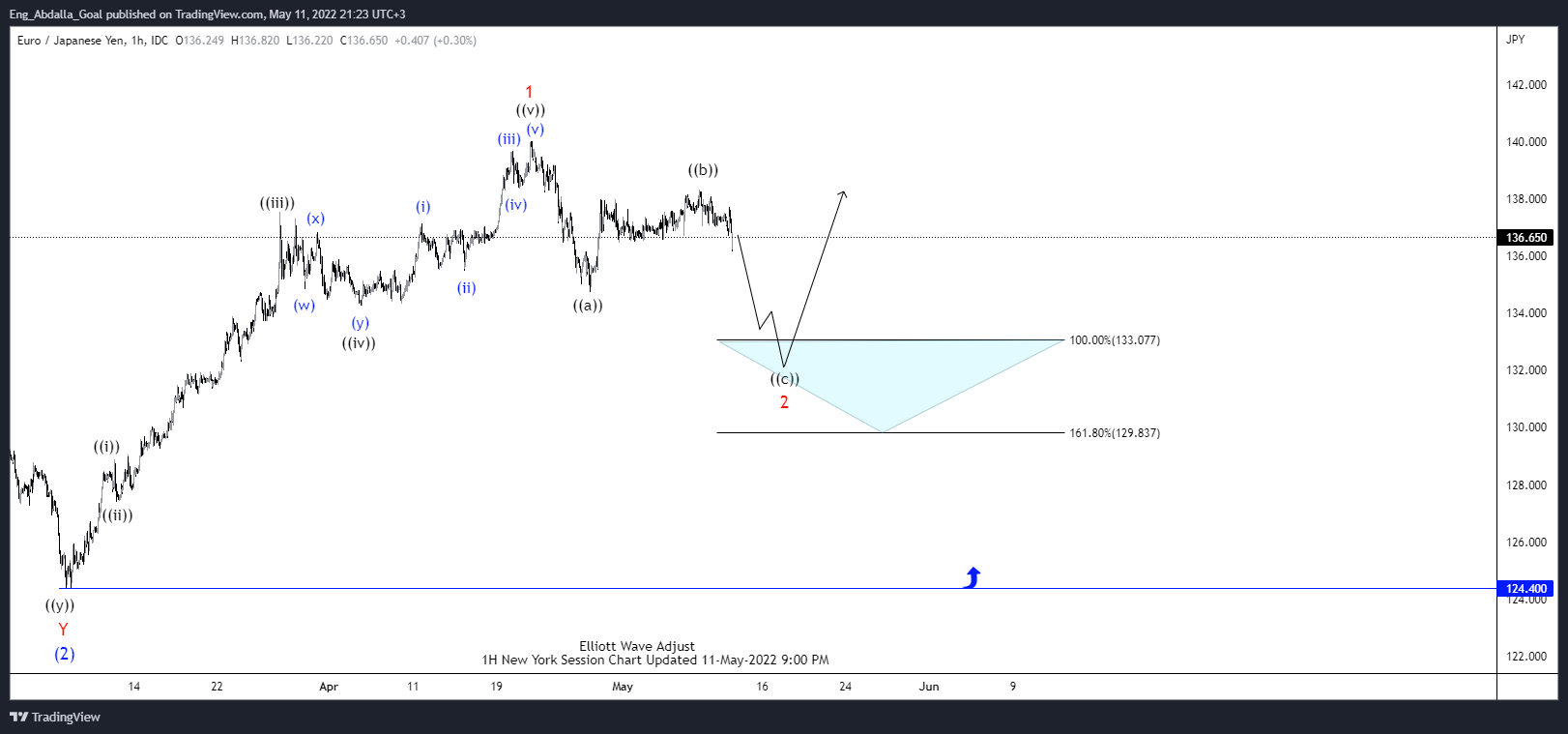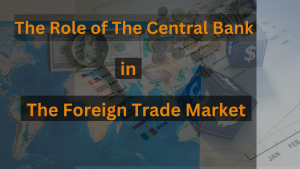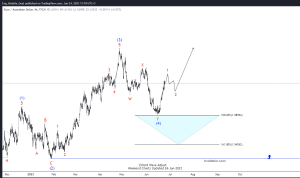Trading Psychology: Many experienced traders say that the most troublesome test they face while turning into a broker is defeating their outlook. Trading brain research alludes to the feelings and mental states that contribute to the achievement or disappointment of stock trading. It reflects different parts of a person’s character and conduct and impacts trading conduct. Trading psychology can be as important in assessing trading execution as different characteristics like mindfulness, experience, and capacity. A portion of these feelings are valuable and should be acknowledged; however, feelings like dread, eagerness, crabbiness, and nervousness should be stifled.
Overview to Trading Psychology
Trading Psychology: Master Your Feelings
In the fast-paced world of trading, mastering your trading psychology is often the differentiating factor between success and failure. While technical analysis and market research are undoubtedly crucial, understanding and managing your emotions play an equally vital role in achieving consistent profitability in the markets.
Trading psychology is perplexing and carves out opportunities to dominate completely. Many traders experience more adverse consequences than positive parts of trading psychology. An illustration of this is the point at which the feeling of dread toward losing turns out to be high to such an extent that one leaves a terrible trade early, or the anxiety toward understanding a misfortune transforms into voracity, and you are essentially twofold down on losing the position.
What is trading psychology?
Trading psychology alludes to the investigation of how a broker’s feelings and mental state can impact his trading choices. Contingent upon the securities trade and the broker’s technique, every trader’s trading psychology can be unique.
The trader’s psychology assumes an important role while making a trade, setting a stop to misfortune, or leaving a trade. To fortify trading brain research, brokers can make a trading guide. This plan can make various strides based on current and future industry events.
Kinds of predispositions that influence traders:
To comprehend the psychology of trading, having a general comprehension of traders’ inclinations and heuristics is vital. Inclinations are separated into two kinds: mental predispositions and emotional inclinations. Mental predispositions allude to efficient examples of deviations from reasonableness in human reasoning and navigation.
An easy route or mental propensity can prompt nonsensical decisions and wrong thinking. Mental predispositions can emerge from restrictions in data handling, heuristics, social impacts, or personal encounters. These frequently happen unknowingly and can impact many parts of independent direction, including insight, memory, consideration, and critical thinking.
At the opposite end of the predisposition range are personal inclinations. This addresses the impact that feelings and temperaments have on navigation. Profound predispositions happen when dread, voracity, or excitement assume a huge part in forming a person’s decisions. Feelings can cloud judgment, cause incautious ways of behaving, and contort the impression of chance and prize. These predispositions can influence choices in various regions, including trading, effective money management, and, surprisingly, day-to-day existence.
Both mental and emotional predispositions can impact dynamic cycles, including those connected with trading and financial business sectors. Traders should know about and deal with these predispositions to settle on additional normal and informed choices. Understanding mental and profound predispositions is fundamental for creating successful systems that lessen their effect and further develop dynamics in trading as well as in different everyday issues.
The Psychology Behind Trading
Trading is not just about numbers and charts; it is about the intricacies of human thoughts. Exploring the human psyche in trading reveals charming insights into how emotions force market actions. Fear, greed, and overconfidence are only a few of the mental elements that can substantially impact trading decisions.
Behavioral Biases and Their Impact
Human beings are inherently irrational creatures, and nowhere is that more obtrusive than within the realm of trading. Behavioral biases, including confirmation bias, herd mentality, and loss aversion, can cloud judgment and cause terrible selection-making. Recognizing and mitigating these biases is crucial for retaining a clear and rational mindset while trading.
The Role of Emotions in Market Movements
Market moves aren’t solely driven by economic fundamentals or technical indicators; psychological principles also play a great role. The collective emotions of traders manifested through buying and selling behavior can create momentum, trends, and even market bubbles. Understanding those psychological dynamics can help traders anticipate market movements and capitalize on opportunities.
Common Emotional Challenges in Trading
Successful trading requires the ability to navigate a minefield of emotions. Here are some of the common emotional challenges faced by traders:
Fear of Loss
The fear of losing money is perhaps the most primal and powerful emotion in trading. Fear of loss can paralyze traders, causing them to hesitate or exit positions in advance. Overcoming this fear requires a disciplined approach to risk management and a focus on long-term rather than short-term fluctuations.
Greed and Risk Management
On the flip side of fear lies greed, the insatiable desire for more profits. Greed can tempt traders to abandon their hazard management strategies in pursuit of higher returns, leading to reckless behavior and catastrophic losses. Maintaining a balance between ambition and prudence is crucial for sustainable buying and selling fulfillment.
Overconfidence and Hubris
Overconfidence is perhaps the most dangerous psychological trap for traders. When things are going nicely, it’s easy to become overconfident and agree that achievement is inevitable. However, overconfidence can cloud judgment and lead to complacency, increasing the likelihood of being easy to become. Staying humble, continually reassessing one’s assumptions, and remaining vigilant against hubris are critical safeguards against overconfidence.
The Role of Discipline in Trading
Discipline is the cornerstone of successful trading. It is the ability to stick to your trading plan even if emotions are going for walks. Maintaining emotional balance requires strict adherence to a well-described buying and selling plan. Developing a trading plan that aligns with your desires and danger tolerance and sticking to it, even in the face of uncertainty, is critical for lengthy-term achievement.
Strategies for Cultivating Discipline
Set clear goals: define your trading objectives and establish clear guidelines for achieving them.
Create a Trading Plan: Develop a comprehensive buying and selling plan that outlines your entry and exit criteria, risk control techniques, and alternate execution rules.
Practice Patience: Successful trading requires patience and the capacity to wait for the proper opportunities to stand up.
Stay Consistent: Consistency is key to building discipline. Stick for your trading plan continually, even during periods of market volatility.
Emotional Intelligence in Trading
Emotional intelligence is the ability to recognize, understand, and manage your emotions effectively. In trading, emotional intelligence is invaluable for making rational decisions and maintaining composure during stressful situations.
Strategies for Enhancing Emotional Intelligence
Develop self-awareness: Take the time to reflect on your reflections and the way they affect your buying and selling behavior. By growing self-awareness, you can discover patterns and triggers and take proactive steps to control them.
Practice Empathy: Empathy lets you understand the feelings of different investors and anticipate marketplace sentiment. This can help you make extra-informed selections and keep yourself from being swayed by herd mentality.
Cultivate Resilience: Trading can be a difficult and unpredictable endeavor. Cultivating resilience permits you to get better from setbacks and stay targeted to your long-term desires.
Mindfulness and Trading
Mindfulness is the practice of being fully present and engaged in the moment. Incorporating mindfulness into your trading routine can help you maintain emotional balance and make better decisions.
Techniques for Practicing Mindfulness
Deep Breathing: Take some deep breaths before putting on a trade to calm yourself and calm your mind.
Visualization: Visualize your self executing successful trades and achieving your trading dreams. This can help boost confidence and reduce anxiety.
Stay Present: Focus on the existing moment and keep away from dwelling on past mistakes or annoying approximately future outcomes. By staying gifted, you could make clearer and more rational decisions.
Stress Management for Traders
Trading can be inherently stressful, especially during volatile market conditions. Managing stress is essential for maintaining peak performance and avoiding burnout.
Strategies for Managing Stress
Take Breaks: Schedule regular breaks during trading sessions to rest and recharge.
Exercise: Physical activity is a fantastic way to reduce strain and clear your mind. Incorporate workouts into your everyday routine to stay wholesome and targeted.
Practice Relaxation Techniques: Techniques that include praying, yoga, and progressive muscle rest can help alleviate stress and promote a feeling of calm.
Essentials of Trading Psychology:
Feeling management:
Dread, voracity, energy, pomposity, and anxiety are commonplace feelings that traders experience eventually while trading. Controlling your feelings while trading can have the effect of developing your stock record or destroying it.
Understanding FOMO:
Traders should distinguish and smother FOMO when it happens. This is difficult. However, traders should continuously recall that there is another trade, and they should just take a chance with a sum that they can stand to lose.
Conquer veracity:
Insatiability merits unique consideration since it is one of the most widely recognized feelings among brokers. When insatiability supersedes rationale, traders will often double down on losing trades or utilize inordinate influence to recover past misfortunes. Even though it is not exactly simple or easy, brokers must comprehend how to control volatility while trading.
Execution of the change service:
The importance of compelling gamble management can’t be undervalued. The mental advantages of hazard management are unending. Targets and misfortune limit points can be characterized ahead of time, permitting traders to inhale a murmur of help knowing the amount they will gamble to accomplish their objectives.
Try not to trade botches.
All brokers, paying little mind to encountering errors, commit errors; however, understanding the rationale behind these missteps can restrict the compounding phenomenon of trading disappointments.
However, with the previously mentioned botch, traders will often make another (large yet usually overlooked) botch: being one-sided. Neuroscience shows that predisposition is essential for human instinct, and in any event, when we put resources into the securities trade, we are unwittingly impacted by it. We should examine this exhaustively.
Importance of trading brain research:
Trader brain research is important because it straightforwardly influences the dynamic cycle, execution, and general progress of a person or content in the financial business sectors. Here’s the reason trading brain research is important:
- Feelings impact direction: Trading psychology perceives that emotional predispositions can impact a trader’s dynamic cycle. Understanding and dealing with these feelings is fundamental to settling on sane and objective trading choices.
- Discipline and consistency: Effective trading requires discipline and consistency in following a trading plan, risk management techniques, and complying with recommended rules. Trading psychology helps brokers create and keep up with the discipline important to staying away from indiscreet activities brought about by feelings.
- Risk Management: Successful gambling management is an important part of trading. Trading brain research permits traders to get a handle on their feelings, set fitting stop-misfortune levels, and oversee risk by keeping up with legitimate position sizes. By really overseeing risk, brokers safeguard capital and increase long-haul benefits.
- Dealing with misfortunes and drawdowns: Misfortunes are an unavoidable part of trading. Trading brain research assists traders with managing misfortunes and drawdowns by limiting the profound effect and forestalling rash activities because of the dread of experiencing further misfortunes. Urges traders to gain from misfortunes and keep a legitimate speculation skyline.
- Long-haul maintainability: Trading brain research empowers a mentality that values consistency. This assists traders with making sensible assumptions, keeping away from rash activities, and keeping a fair way of dealing with trading. This supportable outlook is basic for long-haul achievement and staying away from the risks of inordinate gambling.
Conclusion:
Trading psychology is important because it directly influences the dynamic interaction, discipline, risk management, and execution of the trader. By getting it and dealing with feelings, conquering mental inclinations, and creating flexibility, traders can pursue sane and objective choices, keep up with consistency, oversee risk, work on financial business sectors, and make long-haul progress. Trading brain research increments mindfulness, advances restrained conduct, encourages a maintainable mentality, and, at last, adds to further developed trading results and expanded productivity.
Frequently Asked Questions (FAQs)
Here are answers to some common questions about trading psychology:
1. What is trading psychology, and why is it important?
Trading psychology refers to the study of how emotions and cognitive biases influence trading decisions and behavior. It is essential because emotions such as fear, greed, and overconfidence can significantly impact trading outcomes, often leading to irrational decisions and losses.
2. How can I control my emotions while trading?
Controlling emotions while trading requires self-awareness and discipline. Techniques such as deep breathing, visualization, and mindfulness can help calm the mind and maintain emotional balance during trading sessions.
3. What are some common emotional challenges faced by traders?
Some common emotional challenges faced by traders include fear of loss, greed, overconfidence, and anxiety. These emotions can cloud judgment and lead to impulsive or reckless trading behavior if not properly managed.
4. How can mindfulness help improve trading performance?
Mindfulness practices, such as meditation and focused breathing, can help traders stay present and focused during trading sessions. By reducing stress and increasing self-awareness, mindfulness can improve decision-making and overall trading performance.
5. What are some strategies for managing stress during trading?
Strategies for managing stress during trading include taking regular breaks, practicing relaxation techniques, and incorporating physical exercise into your daily routine. It’s also essential to maintain a healthy work-life balance and seek support from peers or mentors when needed.
6. How can I overcome my fear of failure in trading?
Overcoming the fear of failure in trading requires a combination of self-confidence, risk management, and resilience. Setting realistic goals, focusing on the process rather than the outcomes, and learning from mistakes can help mitigate the fear of failure.
7. Is it normal to experience emotional ups and downs while trading?
Yes, it is entirely normal to experience emotional ups and downs while trading. The key is to recognize these emotions, understand their underlying causes, and develop strategies to manage them effectively.
8. How do I develop discipline in my trading approach?
Developing discipline in trading involves creating a detailed trading plan, setting clear rules and objectives, and sticking to them consistently. It also requires patience, self-control, and the ability to remain focused on long-term goals.
9. What role does risk management play in controlling emotions?
Risk management is crucial for controlling emotions in trading. By defining and adhering to predetermined risk limits, traders can mitigate the emotional impact of losses and avoid making impulsive decisions based on fear or greed.
10. How can I bounce back from losses and setbacks in trading?
Bouncing back from losses and setbacks requires resilience and a positive mindset. It’s essential to learn from mistakes, focus on continuous improvement, and maintain confidence in your abilities as a trader.



